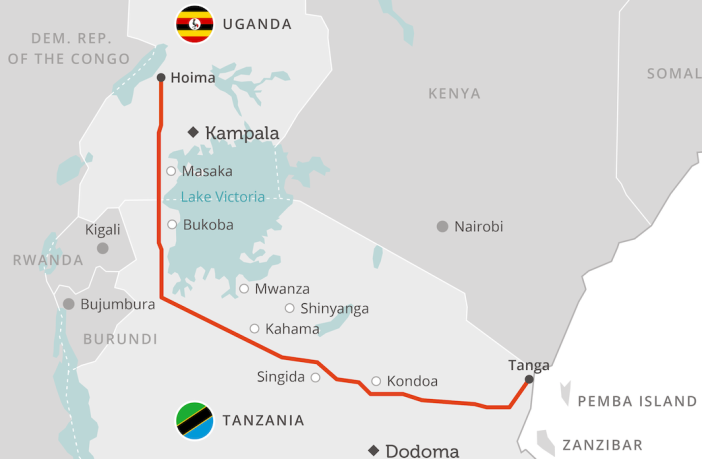- The StopEACOP coalition welcomes the news that Japan’s Mitsubishi UFJ Financial Group (MUFG) is not involved in financing the East African Crude Oil Pipeline (EACOP).
- The controversial EACOP project has been the subject of deepening concerns due to its implications on the climate, nature and human rights.
- This response from MUFG results from concerted efforts by regional and global climate activists who are members of the StopEACOP coalition.
Staff from MUFG responded to the inquiry from 350 Japan about their non-involvement noting the exceptional circumstance that prompted their response. “We refrain from commenting on individual transactions, even if we are not involved in, or have ruled out, the financing of a project. However, given the unique level of interest in EACOP, on an exceptional basis, we can confirm that we are not involved in its financing.”
MUFG’s announcement follows the withdrawal of another Japanese bank, Sumitomo Mitsui Financial Group (SMBC Group), which like MUFG, has been a major financier to TotalEnergies, the main shareholder of the planned controversial pipeline.
MUFG attributed its response to the exceptionally high level of interest in the EACOP project, which can be credited to the dedicated efforts of activists from the StopEACOP coalition, 350 Japan and other campaigners from Japan to Uganda and Tanzania.
The proposed EACOP pipeline will be the world’s largest heated crude oil pipeline, beginning at Hoima in Uganda and terminating in Tanga Port in Tanzania, spanning 1,443 kilometers. However, the project has sparked controversy due to its potential contributions to climate change and human rights abuses, including loss of livelihood by the frontline communities.
Author: Bryan Groenendaal
Source: StopEACOP















